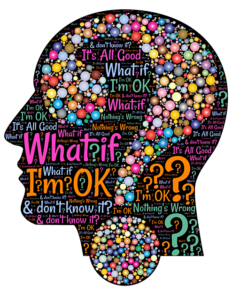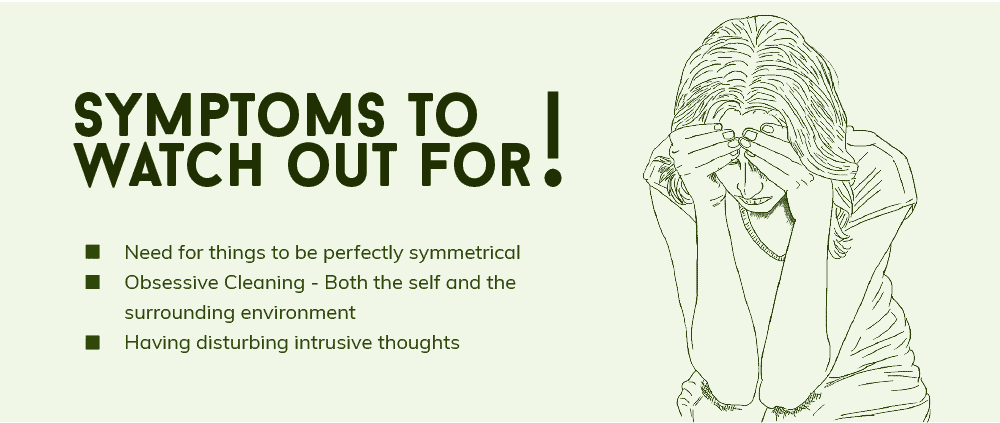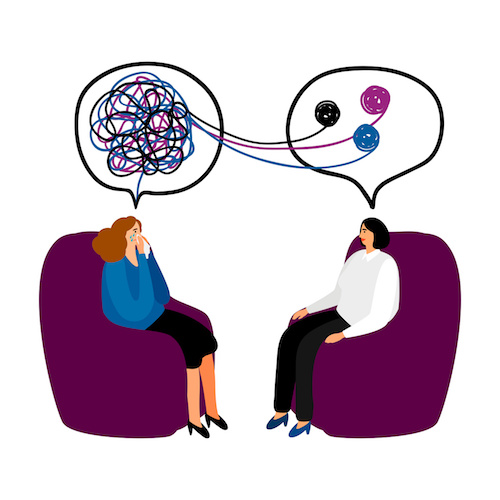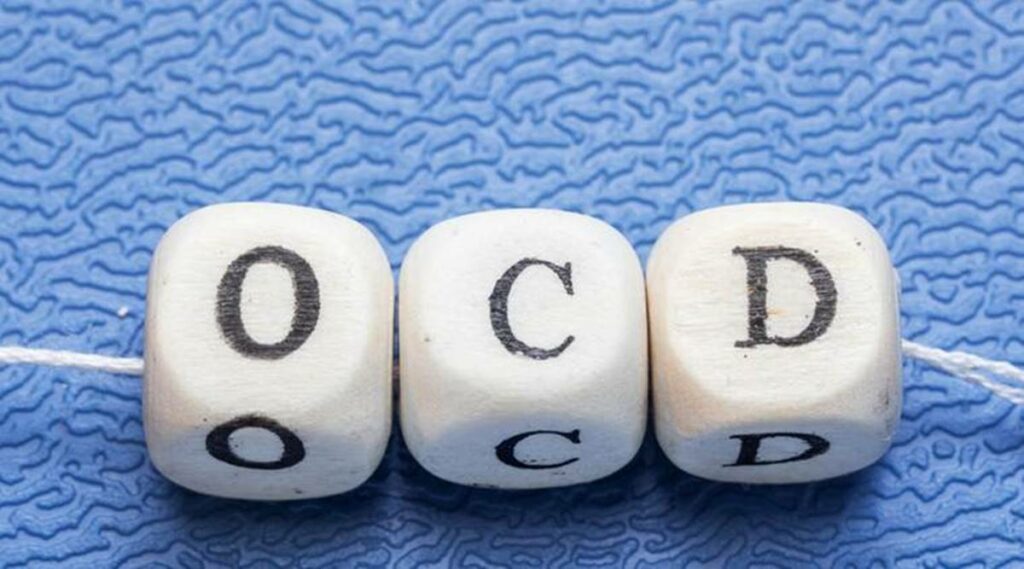Do you have obsessive thoughts that won’t go away? Are you constantly worrying about things that may or may not happen? If so, you may be dealing with obsessive-compulsive disorder (OCD). OCD is a mental illness that causes people to have intrusive thoughts and perform repetitive behaviors. It can be very difficult to live with OCD, but there are ways to deal with it. In this blog post, we will discuss some of the best ways to cope with OCD thoughts.
Contents
- 1 What Does ” OCD Thoughts” Mean?
- 2 Signs of OCD Thoughts
- 2.1 Obsessive thoughts about cleanliness or germs
- 2.2 Intrusive thoughts about harm coming to yourself or others
- 2.3 Excessive focus on religious or moral issues
- 2.4 Intrusive sexual thoughts
- 2.5 Excessive worry about making mistakes
- 2.6 Compulsive behaviors
- 2.7 Constant doubt and second-guessing
- 2.8 Feeling like you have to do things “just right”
- 2.9 Constant worry about being careful
- 3 Causes of OCD Thoughts
- 4 Impacts of OCD Thoughts
- 5 Diagnosis of OCD Thoughts
- 6 Treatment of OCD Thoughts
- 7 How To Avoid OCD Thoughts?
- 8 How To Help Someone With OCD Thoughts?
- 9 Conclusion
What Does ” OCD Thoughts” Mean?
 OCD thoughts are recurrent, intrusive thoughts that cause anxiety or distress. These thoughts are often about things that the person with OCD fears, such as germs, dirt, or violence. People with OCD may try to ignore or suppress these thoughts, but this only makes them feel more anxious.
OCD thoughts are recurrent, intrusive thoughts that cause anxiety or distress. These thoughts are often about things that the person with OCD fears, such as germs, dirt, or violence. People with OCD may try to ignore or suppress these thoughts, but this only makes them feel more anxious.
OCD thoughts can also take the form of mental rituals, such as counting or repeating words in your head. These rituals are usually an attempt to neutralize the anxiety caused by OCD thoughts. However, they often have the opposite effect and end up increasing anxiety and distress.
There may be many origins of why a person may start to develop OCD thoughts. It could be due to genes, brain chemistry, or stressful life events. If you think you might have OCD, it’s important to talk to a mental health professional. They can help you understand your thoughts and develop a treatment plan. There can also be many treatments for OCD, such as cognitive-behavioral therapy, medication, and exposure and response prevention.
If you have OCD thoughts, you’re not alone. Many people struggle with this disorder. But with treatment, you can learn to manage your OCD and live a full and satisfying life.
Signs of OCD Thoughts

There are many signs of OCD thoughts that can be easily identified if you know what to look for. Some of these thoughts are:
Obsessive thoughts about cleanliness or germs
One of the most common signs of OCD thoughts is an obsession with cleanliness or germs. This can manifest itself in several ways, such as constantly washing your hands or avoiding touching door handles. Many products on the market cater to people with OCD, such as antibacterial soap and wipes.
Intrusive thoughts about harm coming to yourself or others
Another common sign of OCD thoughts is having intrusive thoughts about harm coming to yourself or others. This can be extremely distressing and may cause you to avoid certain situations or people. It may also lead to compulsive behaviors, such as checking the locks on your doors multiple times.
Excessive focus on religious or moral issues
For some people with OCD, their thoughts may revolve around religious or moral issues. They may be obsessed with sinning or becoming contaminated by something they consider to be unclean. This can lead to compulsions such as excessive praying or confessing.
Intrusive sexual thoughts
Intrusive sexual thoughts are another common sign of OCD. These thoughts can be highly distressing and may cause you to avoid certain situations or people. It is important to remember that these thoughts are not indicative of anything about you as a person and do not mean that you will act on them.
Excessive worry about making mistakes
Many people with OCD worry excessively about making mistakes. This can lead to perfectionism and a need for things to be “just right.” It can also make everyday tasks much harder than they need to be. If you find yourself obsessively worrying about making mistakes, it’s important to seek help so that you can learn how to manage your OCD healthily.
Compulsive behaviors
Another common sign of OCD is engaging in compulsive behaviors, such as excessive hand-washing, checking things repeatedly, or organizing things in a certain way. These behaviors are often done in an attempt to relieve anxiety or distress. However, they can end up causing more anxiety and making the OCD worse.
Constant doubt and second-guessing
People with OCD often doubt themselves and second-guess their decisions. This can make it very hard to make even simple decisions, such as what to wear or what to eat. This constant doubt and second-guessing can be extremely frustrating and debilitating.
Feeling like you have to do things “just right”
Many people with OCD feel like they have to do things “just right.” This can make everyday tasks, such as getting dressed or making a bed, take much longer than necessary. It can also lead to perfectionism and an inability to finish tasks.
Constant worry about being careful
Another common sign of OCD is a constant worry about being careful. This may manifest itself in a need to check things repeatedly or to avoid certain situations. For example, you may avoid going outside because you’re afraid of something happening to you. This constant worry can be very distressing and make it hard to live a normal life.
These are just some of the most common signs of OCD thoughts. If you find yourself experiencing any of these thoughts, it’s important to seek help from a mental health professional who can help you learn how to manage your OCD healthily.
Causes of OCD Thoughts

There are many causes of OCD thoughts, but the most common is anxiety. Anxiety can be caused by a variety of factors, including stress, genetics, and chemical imbalances. When someone experiences anxiety, their body goes into fight-or-flight mode, which can trigger OCD thoughts.
Some of these causes of OCD thoughts are:
Genetics
Genetics play a role in OCD thoughts, as they do in many mental health disorders. If you have a family member with OCD, you may be more likely to experience OCD thoughts yourself. There may be many other family members with other mental health disorders. This does not mean that you will experience OCD thoughts, but it is a risk factor.
Sometimes these genetics also play a role in how the brain develops and processes information. This can lead to imbalances in chemicals, such as serotonin, which can contribute to OCD thoughts.
Mental Health Issues
Many mental health disorders can cause OCD thoughts. Some of the most common are anxiety disorders, such as generalized anxiety disorder (GAD), panic disorder, and social anxiety disorder.
Depression is another mental health disorder that can cause OCD thoughts. People who are depressed often ruminate on their negative thoughts and dwell on things that they cannot control. This can lead to OCD thoughts and compulsions.
PTSD can also be a cause of OCD thoughts. People who have PTSD often have intrusive thoughts about their trauma. They may also avoid certain situations or people that remind them of their trauma. This can lead to significant distress and difficulty functioning in everyday life.
Chemical Imbalances
Another possible cause of OCD is a chemical imbalance in the brain. This can be due to several factors, such as genetics or an infection. Chemical imbalances can also be caused by stress, which is a common trigger for OCD. It may also be due to a combination of factors. Chemical imbalances also make one more susceptible to anxiety and depression, which can also be triggers for OCD.
Trauma
Another big factor in the development of OCD is trauma. This can be a one-time event, such as a car accident or witnessing a violent crime. It can also be chronic, like living in a war zone or being the victim of abuse. Trauma changes the way our brains process information and can trigger OCD symptoms. Also, trauma can be cumulative, meaning that even small, seemingly insignificant events can add up over time and lead to OCD. Many times there can also be many different types of trauma that contribute to the development of OCD.
Abuse
An important thing to keep in mind is that OCD thoughts are not reality. Just because you have a thought, does not mean it is true or will happen. If you have intrusive thoughts about harming yourself or others, please remember that these thoughts are a symptom of OCD and do not reflect your character or who you are as a person. It can be difficult to remind yourself of this when you’re amid an obsession, but it is important to try to reframe your thinking and tell yourself that the OCD thought is just a symptom and not reality.
Personality Issues
One of the issues that can cause OCD thoughts is personality. If you have a perfectionist personality, then you may be more likely to develop OCD. This is because you tend to be harder on yourself and have higher standards. You may also be more likely to worry about things being “just right”. OCD thoughts can also be a result of trauma or stress. If you have experienced a traumatic event, then you may be more likely to develop OCD. This is because the trauma can cause you to feel out of control and anxious. You may also be more likely to worry about things that remind you of the trauma.
Brain Injury
Another common cause of OCD is a brain injury. This can occur due to a head injury, stroke, or another type of damage to the brain. Brain injuries can cause changes in the way the brain functions, which can lead to OCD. Also, certain types of brain injuries are known to be associated with OCD. If you have suffered a brain injury, it is important to talk to your doctor about the possibility of OCD. It may also make it a good idea to seek out counseling or therapy to help you deal with your OCD.
There are many other potential causes of OCD, but these are some of the most common. If you think you may have OCD, it is important to talk to your doctor.
Impacts of OCD Thoughts

OCD thoughts can have a significant impact on a person’s life. They can interfere with work, school, and personal relationships. OCD thoughts can cause a great deal of anxiety and stress.
Some of these impacts are on:
Relationships
One of the most significant impacts of OCD thoughts is on relationships. When you’re dealing with OCD, it can be difficult to maintain close personal relationships. This is because OCD can cause you to isolate yourself and pull away from others. It can also be difficult to have healthy relationships when you’re constantly doubting yourself and your decisions. OCD thoughts also tend to be all-consuming, which can make it difficult to focus on anything else.
Work
Another area where OCD thoughts can have an impact is work. OCD can interfere with your ability to concentrate and get work done. It can also cause you to miss work or be late for work. If you have a job that requires precision or attention to detail, OCD can make it difficult to do your job. Sometimes work also triggers OCD thoughts. For example, if you’re a doctor and you make a mistake, it can trigger intrusive thoughts about harming patients.
School
Another common area where OCD thoughts can have an impact in school. When you’re dealing with OCD, it can be difficult to focus on your studies. It can also cause you to miss school or be late for class. OCD can also interfere with your ability to take tests or participate in class. Sometimes there may also be many things that trigger your OCD at school. For example, if you have contamination OCD, the thought of germs on doorknobs or in the bathrooms can be very triggering.
Personal Life
Personal life can also be impacted by OCD thoughts. When you’re dealing with OCD, it can be difficult to enjoy activities that you used to enjoy. It can also be difficult to spend time with friends and family. This is because OCD can cause you to isolate yourself and pull away from others. In addition, OCD thoughts can be very time consuming and can take up a lot of your time. It can also be difficult to maintain a healthy lifestyle when you’re dealing with OCD. This is because OCD can cause you to have difficulty sleeping, eating, and exercising.
Mental Health
Another significant impact of OCD thoughts is on mental health. OCD can cause a great deal of anxiety and stress. This can lead to other mental health problems, such as depression or anxiety disorders. It is also common for people with OCD to self-medicate with alcohol or drugs. This can lead to substance abuse problems. Some of these mental health problems can be very serious and can even lead to suicide.
Self-Harm
A final impact of OCD thoughts is self-harm. Some people with OCD engage in self-harm as a way to cope with their intrusive thoughts. This can include cutting, burning, or hitting oneself. Self-harm can also be a way to try to make the intrusive thoughts go away. However, self-harm can lead to serious injuries and even death. It may also be a sign of other mental health problems, such as depression or anxiety disorders.
These are some of the impacts of OCD thoughts. If you or someone you know is dealing with OCD, it is important to talk to a doctor or mental health professional. OCD can be a very serious condition and it is important to get help.
Diagnosis of OCD Thoughts
Diagnosing OCD thoughts can also be difficult, as many people with OCD may not want to discuss their thoughts for fear of being judged. However, it is important to seek professional help if you are struggling with intrusive thoughts or compulsions that are impacting your quality of life. A mental health professional can help you to understand your thoughts and develop a treatment plan to address them.
There are many ways the diagnosis of OCD thoughts. The most common and well-known method is the Y-BOCS, which is a clinician-administered scale that rates the severity of OCD symptoms on a scale of 0 to 40. However, there are also self-report measures, such as the OCI-R, that can be used to assess the severity of OCD symptoms.
There are some key signs and symptoms of OCD thoughts that can help to identify the disorder. These include:
-Recurrent and persistent thoughts, impulses, or images that are intrusive and cause distress or anxiety
-Attempts to suppress or ignore these thoughts, impulses, or images
-Excessive worry about the consequences of these thoughts, impulses, or images
-Compulsive behaviors or mental rituals (such as counting, repeating words silently, avoidance) that are meant to reduce anxiety but instead end up causing more distress
-Impairment in daily functioning due to the above symptoms
Other than this, many self-tests can be found online to test whether you have OCD thoughts or not. If you think you might have OCD thoughts, it is important to seek professional help to get a proper diagnosis and start treatment.
One should always visit a doctor for a proper diagnosis of OCD thoughts. However, some self-tests can be found online that will give you a fair idea about whether you suffer from OCD thoughts or not.
An example of a self-test:
- Do you have obsessive thoughts?
- Do you have compulsive behaviors?
If you answered yes to both questions, you likely suffer from OCD thoughts. If you think you might have OCD thoughts, it is important to seek professional help to get a proper diagnosis and start treatment.
Treatment of OCD Thoughts
Treating OCD thoughts can be difficult, but there are a few effective methods. Some of these are:
Medications
 Medications are one of the most common treatments for OCD thoughts. The two main types of medicines used to treat OCD are antidepressants and anti-anxiety medications.
Medications are one of the most common treatments for OCD thoughts. The two main types of medicines used to treat OCD are antidepressants and anti-anxiety medications.
- Antidepressants work by increasing levels of serotonin, a chemical in the brain that helps to regulate mood.
- Selective serotonin reuptake inhibitors (SSRIs) are the most commonly prescribed type of antidepressant for OCD thoughts. Examples of SSRIs include fluoxetine (Prozac), sertraline (Zoloft), and paroxetine (Paxil).
- Anti-anxiety medications can also help treat OCD thoughts. These work by reducing anxiety and helping to improve sleep.
- Benzodiazepines are the most common type of anti-anxiety medication. Examples of benzodiazepines include alprazolam (Xanax) and lorazepam (Ativan).
Therapy

Therapy is another effective treatment for OCD thoughts. Some of these therapy options are:
Cogntive-behavioral therapy (CBT)
CBT is a type of therapy that focuses on changing negative thoughts and behaviors. Also, CBT is an effective treatment for OCD thoughts. CBT works by teaching people how to identify and challenge their negative thoughts. People use this type of therapy to learn how to better manage their OCD thoughts. CBT makes a big difference for people with OCD thoughts and can help them to lead more productive and fulfilling lives.
Dialectical behavior therapy (DBT)
Dialectical behavior therapy (DBT) is an effective treatment for individuals with obsessive-compulsive disorder (OCD). It is a cognitive-behavioral treatment that focuses on helping people change their thinking and behavior. In dialectical behavior therapy, the therapist works to help the individual understand and accept their OCD thoughts and behaviors. The therapist also helps the individual learn new skills to cope with their OCD. It makes use of techniques such as mindfulness, acceptance, and commitment therapy. Dialectical behavior therapy is an effective treatment for OCD. It can help people reduce their OCD symptoms and improve their quality of life.
Exposure and response prevention (ERP)
ERP works by gradually exposing you to the situations that trigger your OCD thoughts and behaviors while teaching you how to resist the urge to engage in those behaviors. It’s a process that can be challenging, but it’s often very effective in treating OCD.
There are many different types of exposure therapy, but they all share a few basic elements:
- You’ll work with a therapist to identify your specific triggers and fears.
- You’ll then gradually expose yourself to those triggers in a controlled and safe environment.
- As you become more comfortable with the exposure, you’ll learn how to resist the urge to engage in compulsive behaviors.
Family-Based Therapy
Another option for treating OCD is Family-Based Therapy. This therapy focuses on educating the family about OCD and how to best support their loved one suffering from the disorder. It also teaches different ways to manage and cope with symptoms. Family-Based Therapy is an effective treatment for OCD, especially in children and adolescents. Also, there are many support groups available for families dealing with OCD.
Support Groups
 An OCD support group can provide you with valuable information, resources, and support. It can be helpful to talk to others who understand what you’re going through and can offer advice and coping strategies. There are many online OCD support groups available, as well as in-person groups in some areas.
An OCD support group can provide you with valuable information, resources, and support. It can be helpful to talk to others who understand what you’re going through and can offer advice and coping strategies. There are many online OCD support groups available, as well as in-person groups in some areas.
These support groups are not only helpful for dealing with OCD thoughts, but they can also be a great way to meet new friends and build a support network.
Here are some tips for getting the most out of a support group:
-Be open and honest about what you’re going through. It can be difficult to talk about your symptoms, but it can also be very helpful to share with others who understand.
-Listen to what others have to say and take what you find helpful.
-Don’t be afraid to ask questions.
-Remember that everyone is different and what works for one person may not work for another.
-Support groups are not a substitute for professional help, but they can be a great complement to therapy or medication.
Self-Care
Another treatment option that can be very helpful is self-care. This means taking care of yourself emotionally and physically. When you are stressed, your OCD can get worse. So, it’s important to find ways to relax and reduce your stress. Some things that can help are exercise, yoga, meditation, and deep breathing exercises. Getting enough sleep and eating a healthy diet is also important for reducing stress.
Some of these self-care habits are easier to implement than others. But, even making small changes can have a big impact on your OCD symptoms. So, don’t get discouraged if you can’t do everything on this list. Just pick one or two things that you can realistically do and start there.
How To Avoid OCD Thoughts?

Avoiding OCD thoughts may seem impossible, but it is possible. Here are some things that you can do to avoid or minimize OCD thoughts:
-Identify your triggers: What situations, places, people, or activities make your OCD thoughts worse? Avoiding these triggers can help reduce the frequency and intensity of your OCD thoughts. Sometimes these triggers also become avoidance behaviors, which can make OCD worse. If you find yourself avoiding certain things because of your OCD thoughts, talk to a therapist about this so that you can work on overcoming your avoidance.
-Challenge your thoughts: Once you know what your triggers are, you can start to challenge your OCD thoughts. This means recognizing when you are having an OCD thought and then questioning the thought. For example, if you are afraid of contamination, you might question whether the object you are touching is contaminated. Asking yourself questions like this can help to reduce the power that your OCD thoughts have over you.
-Focus on what is important to you: When you are feeling overwhelmed by OCD thoughts, it can be helpful to focus on what is important to you in life. This can help you to remember that OCD thoughts are not reality and that they do not have to control your life.
-Talk to someone who understands: Sometimes it can be helpful to talk to someone who understands what you are going through. Talking to a therapist or joining a support group for people with OCD can help you feel less alone and give you some tools for dealing with your OCD thoughts.
These are just a few ideas for how to avoid OCD Thoughts.
How To Help Someone With OCD Thoughts?

Helping someone always helps the person feel better. It is essential to learn how to help someone with OCD thoughts to make their life more bearable.
The first step is always to be there for the person. Show them that you are supportive and willing to help in whatever way possible. This includes being patient and listening attentively when they want to talk about their thoughts or fears. It is also helpful to offer reassurance and encouragement.
The second step is helping the person develop a more positive outlook toward their condition. This can be done by providing information about OCD and how it affects people’s lives. It is also important to dispel any myths or misconceptions about the disorder. Helping the person understand that OCD does not define them as a person can be extremely empowering.
The third step is to assist the person in developing healthy coping mechanisms. This includes helping them identify and avoid triggers and teaching them how to use relaxation techniques or other methods of managing anxiety. It is also important to encourage the person to seek professional help if their symptoms are severely impacting their life.
If you know someone who is struggling with OCD thoughts, remember that you can make a difference in their life by offering your support and understanding. By taking these steps, you can help them develop a more positive outlook on OCD and empower them to manage their symptoms effectively.
Conclusion
OCD thoughts are not always easy to deal with, but there are ways to manage them. If you think you might have OCD, talk to a mental health professional. They can help you develop a treatment plan that may include medication and/or therapy. Remember, you are not alone in this. Many people understand what you’re going through and can offer support.
If you have OCD thoughts, the best thing you can do is to face them head-on. This means accepting that your thoughts are there, but not letting them control your life. You can do this by learning about your disorder and finding healthy coping mechanisms.
Hope this article was of help to you! If you are suffering from OCD, you may seek help from Therapy Mantra. We have a team of highly trained and experienced therapists who can provide you with the tools and skills necessary for overcoming OCD. Contact us today to schedule an online therapy or download our free OCD treatment app on Android or iOS for more information.


